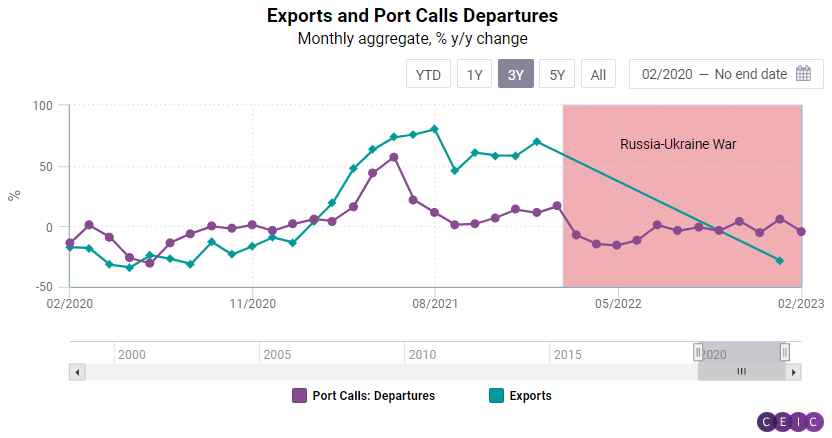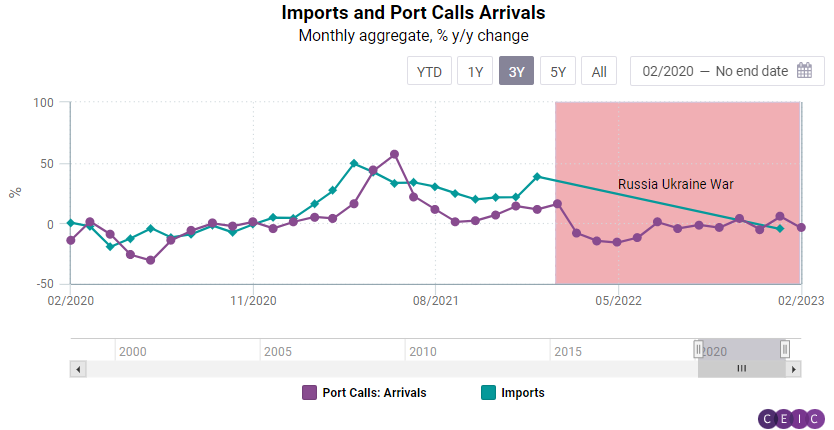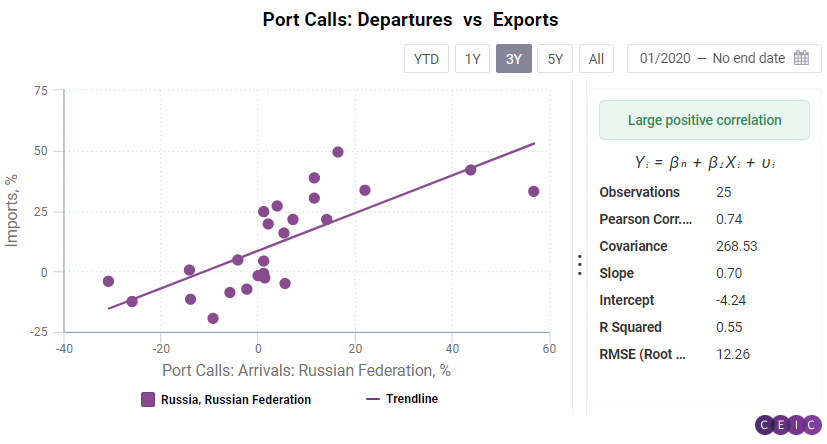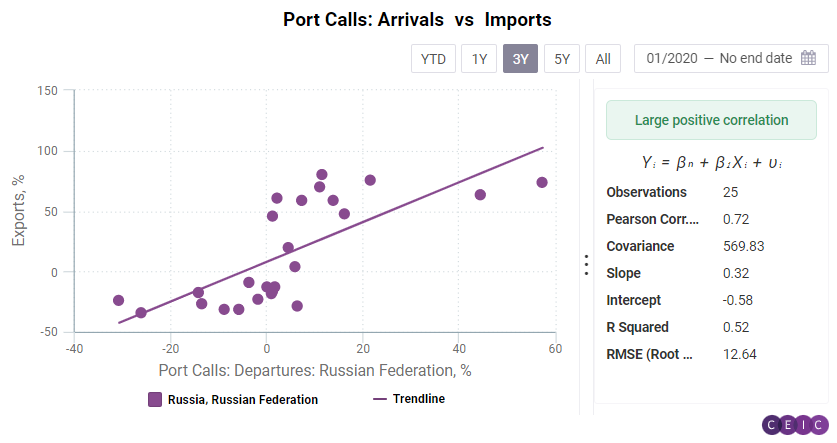-png.png)
The sanctions against Russia failed to cause any significant dent in the country’s international trade, according to daily port arrivals data by Marine Traffic. The lack of export and import data for almost a year made it difficult to gauge the true extent of the damage caused to Russia’s foreign trade. However, port arrivals and departures suggest remarkable resilience, which can be attributed to a sharp responsive shuffling of the nation’s major trading partners. In mid-March 2023, Russia released new trade data only for January 2023, a year after its previous update for January 2022, which reaffirms the need for alternative indicators to fill such data vacuums.

Aggregating the daily numbers to a monthly frequency and juxtaposing them against the respective trade channel shows a close connection between exports and departure port calls (records of vessels arriving and departing from ports), as well as imports and arrival port calls. In March 2022, port calls for both arrivals and departures suffered sharp declines, which worsened until May before recovering. The January 2023 data also corroborate the narrative of the port data even though the official customs data reflects the value of trade instead of volume.

A scatterplot between exports and port departure calls displays the tightness of fit, an observation that can be extended to imports and port arrivals too. Hence, port traffic data can provide crucial insights into a country’s trade and since the frequency is daily, it can also act as a leading indicator of trade, and by extension, the overall economy.

The port vessel movements data from Marine Traffic carries information on the daily arrival calls and departure calls from the world's 100 largest ports by Llyod's List, and also port congestion for over 3000 global active ports, representing a complete picture for global sea trade.

Global supply chains have intricate connections with macroeconomic indicators such as inflation, demand, and there, the overall economy. These have gained even greater importance in the light of shock situations such as the ones caused by the COVID-19 pandemic and the Russia-Ukraine war, as they can help gauge the impact of exogenous shocks on the economy in real time.
The CEIC Global Database provides access to a vast database where users can gain insight into the ever-changing dynamics of world economies.
.png?width=160&name=ceic-logo-Vector%20logo%20no%20tagline%20(002).png)
